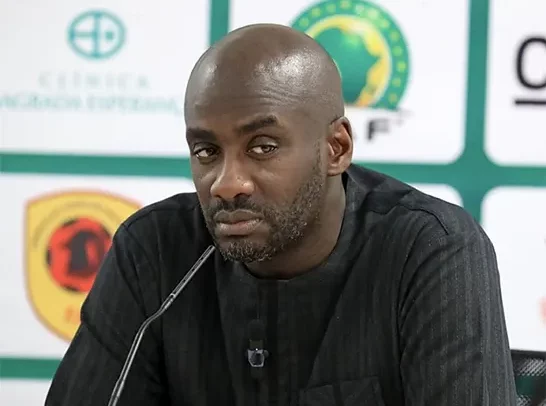
For too long, supply chains have been relegated to the back room. Boxes moved. Papers were stamped.
Trucks were chased. Prestige gathered around finance, marketing, and classic operations. Then came a string of shocks that refused to knock quietly. A pandemic grounded planes and slowed ports.
A single stuck vessel choked a canal and rattled global trade. War shook grain and energy routes. Floods and droughts turned weather into a board risk. In that moment of clarity, one lesson cut through the noise. Survival rests on supply chains, and supply chains begin with procurement.
Where every journey of value begins
Every network begins with a buying choice. Procurement selects the supplier, writes the specification, sets the standard, and shapes the risk. It determines whether a nation exports raw materials and imports finished goods, or builds capacity domestically.
In many countries, procurement steers a large share of national income and most public spending. When it is competent and ethical, budgets become bridges, clinics, classrooms, and factories. When it is weak or politicised, budgets become headlines and disappointment. Put simply, procurement is the ignition key of the supply chain engine.
Place the navigator beside the captain
The chief operations officer once stood as the natural deputy to the chief executive. But efficiency without resilience is a glasshouse. A firm can be lean today and broken tomorrow if it cannot absorb disruption. The Chief Supply Chain Management Officer is the leader that the twenty-first century demands.
This is not a relabelled traffic manager. The CSCMO is the architect of competitiveness and continuity, the one who unites procurement, logistics, manufacturing support, inventory, service, and risk into a single system that can deliver through calm and storm.
This is why, today, the role of the CSCMO is regarded as being on equal footing with the Finance and Legal within progressive boardrooms and cabinets.
Uptime is the new margin
Cost matters, but it is not the only line on the ledger. The CSCMO is judged by readiness for shocks, by the depth and health of suppliers, by ethical and sustainable sourcing, by uptime on the customer side, and by the quality of insight that guides board decisions in real time.
The most elegant strategy cannot hide empty shelves and poverty. No loan can rescue a plant or a nation without effective procurement. Strategy fails at the point of purchase if procurement is not integrated and led from the top.
Proof that leadership works
Examples give confidence. Toyota rebuilt its network after the tsunami, mapped deep-tier suppliers, and created buffers for critical parts. Later shocks came. It endured better than its rivals. Unilever integrated sustainability and supplier development into its daily operations, leveraging responsibility to gain a competitive edge.
Johnson and Johnson kept life-saving products moving when others stumbled. Apple secures access to rare minerals through deliberate foresight, not luck. Different industries and increasingly nations, same pattern. Foresight beats hindsight. Procurement that aligns with the wider chain and societal development is more effective than mere purchasing.
When value leaves raw and returns costly
Here is the hard truth: weak procurement and supply chain management leadership secretly undermine industrialisation and long-term economic development. Ghana exports raw cocoa; Zambia exports unprocessed copper; Nigeria exports crude oil that becomes costly fuel abroad.
This results in lost money, skills, jobs, and bargaining power. It reflects a pattern of exporting the easy and importing the vital, cemented by procurement decisions and logistics.
AfCFTA and Agenda 2063 stand or fall on supply leadership
The African Continental Free Trade Area aims to expand markets and boost intra-African trade. Agenda 2063 envisions a prosperous, integrated Africa. These goals won’t be achieved through declarations but through purchasing from local and regional suppliers, seamless cross-border logistics, effective inventory and planning, and contracts that foster local value creation. The key question is whether to empower the CSCMO with authority or keep them marginalised.
Procurement turns policy into plant and equipment and national development
When professionals lead procurement, a purchase order becomes industrial policy in action. Contracts can require realistic local content that rises over time. They can include supplier upgrading and technology transfer with clear milestones. They can insist on spares, training, and uptime so that equipment works beyond the ribbon-cutting. They can reward on-time delivery and penalise avoidable delay. They can require prompt payment to small firms so that they can hire apprentices and buy better tools. This is how tenders become factories. This is how maintenance budgets become reliability. This is how a steady stream of small wins becomes national capability.
Resources without networks are stranded riches
Ghana has significant installed cocoa grinding capacity, yet processors often run below potential. Zambia’s copper value addition remains thin, held back by policy uncertainty and access constraints. Nigeria continues to rely on imports and private refining efforts, while state refineries struggle to restart. These are not failures of resources. They are failures of network design, incentives, and discipline. The cure is not a grand speech. It is steady professionalism, beginning with procurement and carried through logistics and operations under the stewardship of a CSCMO.
What capable nations already do
South Korea leveraged public demand to cultivate suppliers capable of later exporting. Norway used oil and gas purchasing to build domestic capability and long-term wealth. Singapore treated procurement, logistics, and industrial planning as one system and built world-class hubs with limited natural endowment. They did not wait for miracles. They treated procurement as the first classroom of development and the first gate of the supply chain.
Put the CSCMO on the executive committee
Boards should ask four direct questions. Who owns end-to-end resilience from source to service? How can we connect every major award to local skills and capabilities? What are our real-time risk maps and recovery plans? How do we report procurement and supply chain performance to the board in a way that drives action? If the CSCMO cannot answer these, the organisation is running on luck.
Professionalise by law and by practice
Diplomacy alone isn’t enough. Parliaments should regulate procurement and supply as professions, establishing statutory professional bodies to license practitioners, set standards, enforce ethics, and keep a public register. Licensed professionals must hold senior posts, there must be protection for whistleblowers, and sanctions must be in place for misconduct.
There must be continuous investment in training in planning, risk, inventory, finance, and logistics. Leaders must be rotated through supply roles. Bonuses must be tied to resilience, service, and cost. Include the CSCMO on the executive committee, inviting them to all strategy, merger, and investment decisions.
A starter plan that any country can begin
Start with licensing and capability. First, license qualified senior practitioners now and set a three-year clock for licensing everyone who practices major procurement awards. Second, the government must make a conscious effort to empower locals using large contracts as enablers, but with clear milestones. Third, publish a simple monthly dashboard to make progress visible. When people can see movement, trust grows and waste falls.
A candid warning
Ignore this reality, and the poverty generation loop remains: Export raw. Import finished. Borrow to fill the gap. Watch the currency strain. Blame external forces. That loop is not a curse. It is a choice. The antidote sits at the tender desk and in the control tower of the chain. It is the CSCMO with authority to act that can halt this reality.
Call to action
Private and public sector organisations and governments must position the Chief Supply Chain Management Officer (CSCMO) at the highest level of decision-making and keep them there. View procurement and supply as professional fields. Properly license personnel, publish performance data, and reward resilience and service. Focus on creating local content that genuinely improves skills, supports long-term industrialisation, and promotes economic growth. Maintain what is built, and by applying consistent discipline to these everyday actions, extraordinary outcomes will emerge.
The African Continental Free Trade Area (AfCFTA) will facilitate more intra-African trade. Agenda 2063 will shift from mere promises to tangible progress. Families will notice this in stable prices, functional clinics, durable roads, and increasing employment. The inconvenient truth: The CSCMO is no longer merely a designation existing in the background; it now actively promotes and safeguards organisational and national development. Its swift rise is not a transient trend but an inevitable reality and a new leadership paradigm for this century.
>>>the writer is a globally celebrated thought leader, Chartered Director, industrial engineer, supply chain management expert, and social entrepreneur known for his transformative contributions to industrialisation, procurement, and strategic sourcing in developing nations.
As Africa’s first Professor Extraordinaire for Supply Chain Governance and Industrialization, he has advised governments, businesses, and policymakers, driving sustainability and growth. During his tenure as Chairman of the Minerals Income Investment Fund (MIIF) and Labadi Beach Hotel, he led these institutions to global recognition for innovation and operational excellence. He is also the past chairman of the Public Procurement Authority.
A prolific author of over 90 publications, he is the creator of NyansaKasa (Words of Wisdom), a thought-provoking platform with over one million daily readers. Through his visionary leadership, Professor Boateng continues to inspire ethical governance, innovation, and youth empowerment, driving Africa toward a sustainable and inclusive future.
The post The Inconvenient Truth with Professor Douglas BOATENG: The Chief Supply Chain Management Officer is gatekeeper of industrialisation and long-term dev’t appeared first on The Business & Financial Times.
Read Full Story













Facebook
Twitter
Pinterest
Instagram
Google+
YouTube
LinkedIn
RSS